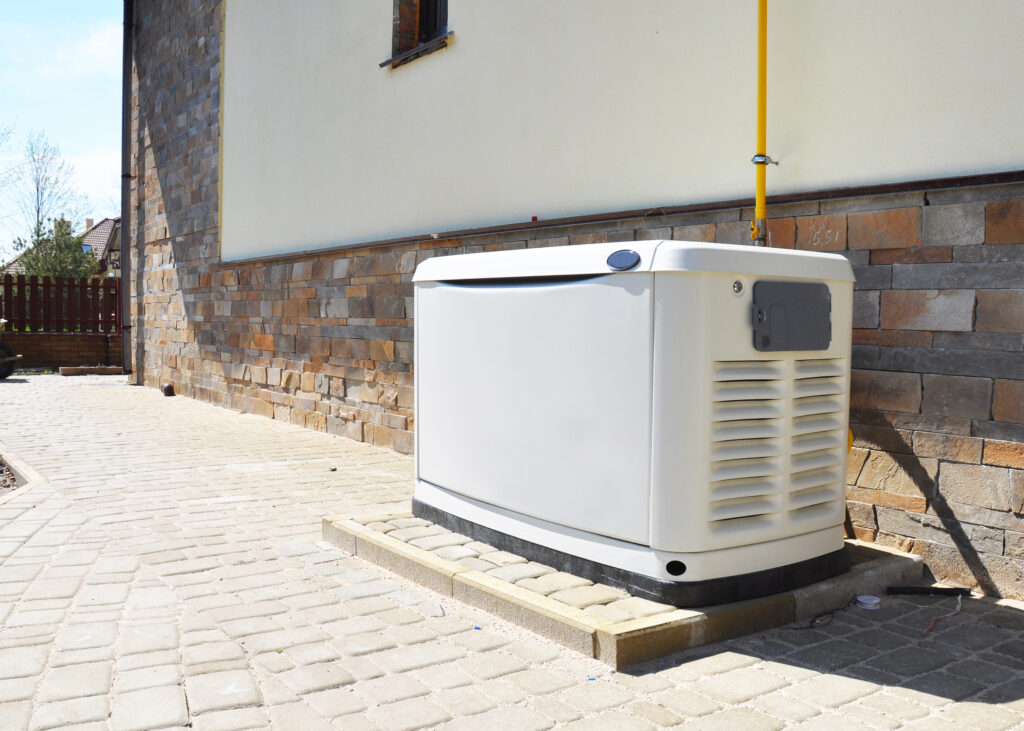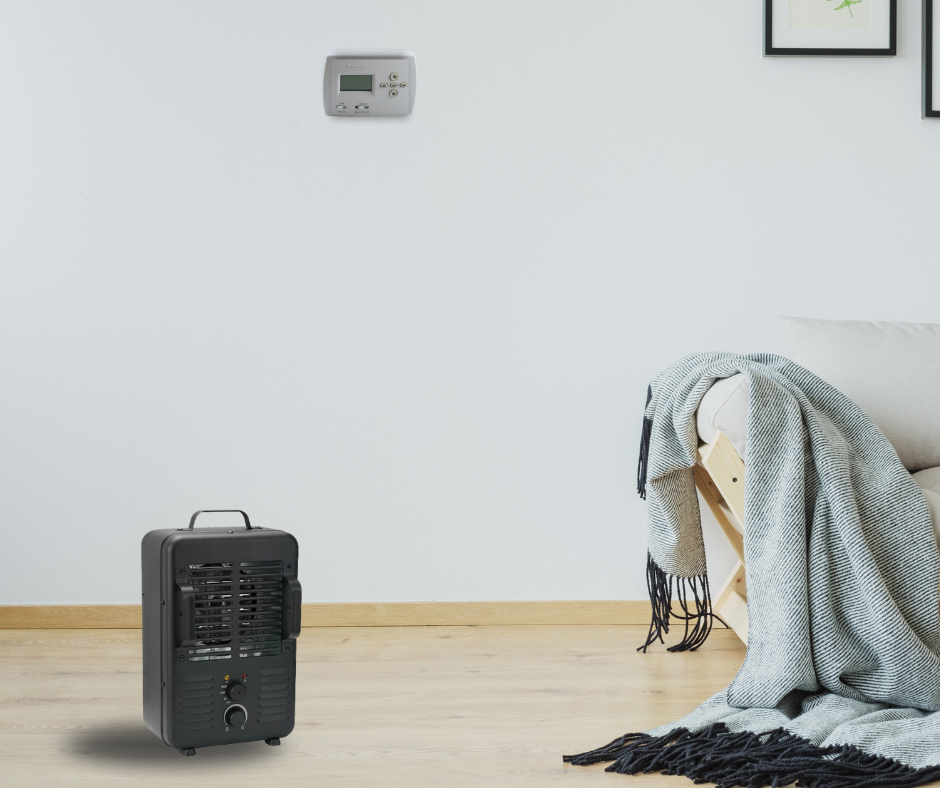There’s no doubt that coastal hurricanes and severe winter storms can result in power outages throughout Rhode Island and Massachusetts. When you have a home generator, you can keep your household comfortable and safe until your normal power grid gets restored. Below, we’ll break down the different types of generators, wattages, fuel options, and so forth so that you can confidently choose the right generator for your home.

Portable vs. Standby Generators
There are two main categories of generators that you can use to create power during an outage. The first is a portable generator, a compact unit that’s easy to move around. This is a budget-friendly option that requires manual setup and refueling. Most portable generators create only enough power to run a limited number of appliances.
Standby generators, also commonly referred to as whole-home generators, are larger and more permanent. This type of generator is wired into your home’s electrical system and offers automatic startup whenever it senses that your normal power grid is down. Standby generators are much more expensive than portable generators but provide convenient, hands-free operation. Even better, they can power your entire home, not just a limited number of items.
Dual-Fuel vs. Tri-Fuel Generators
Generators are specifically designed to run on one or more types of fuel. Typical standby generators run on natural gas, gasoline, propane, or diesel fuel. Dual-fuel generators bring the added convenience of being able to run on two different types of fuel. For example, a dual-fuel unit may run on natural gas and propane.
A tri-fuel generator can run on three different types of fuel. This type is becoming more and more popular among homeowners who want maximum flexibility for long-term power during extended outages.
Understanding Available Wattages
The wattage of a generator tells you how much power it can produce. As the wattage rating of a generator increases, the number of items it can power also goes up. You will need to determine the ideal wattage to power the items you need to operate during an outage.
In general, these wattages are rough estimates. A 5,000 to 7,500-watt generator is typically enough to run household lighting, a fridge, and a well pump. This size is typically best for small houses and apartments under 1,500 square feet. Between 7,500 and 10,000 watts is ideal for most mid-size homes between 1,500 and 2,500 square feet. This wattage level will power all the essentials as well as a furnace fan, a sump pump, and even a window air conditioner, so you’ll always remain comfortable.
A larger 10,000-to-20,000-watt generator is recommended for homes over 2,500 square feet. They have enough power to run your home’s electric heating system or central air conditioning. A generator over 20,000 watts is necessary if you want whole-home coverage. This means it will power all your lighting, HVAC systems, water pumps, and other household appliances.
Why Is a Generator a Necessity in RI and MA?
Both Rhode Island and Massachusetts experience some nasty Nor’easters that bring down heavy snow and ice. These are notorious for downing power lines and can leave whole communities without power for days until conditions have improved enough for prompt repairs. With a whole-home generator, you can ensure that your heating continues to work, keeping your home and family safe until power can be restored to your local grid.
From late summer to early fall, coastal hurricanes and tropical storms can bring high winds and immense rainfall. This can lead to flooding and knocked-down power lines. A generator will ensure your sump pump can keep working even when your power goes out.
Factors to Consider
When purchasing a generator for your home, there are a few key factors you’ll need to consider. These include your budget, the fuel availability in your area, your power needs, and the overall convenience of operation. There simply isn’t a one-size-fits-all generator solution for homeowners. That is why we suggest scheduling a consultation with one of our electricians to discuss the best options to fit your unique needs.
Reliable Generator Installation Service
Gem Plumbing and Heating offers reliable generator installation service for customers in Rhode Island and Southeast Massachusetts. We can also help with all your generator repair, tune-up, and replacement needs.
Call our office today to schedule a service consultation with one of our helpful electricians.
